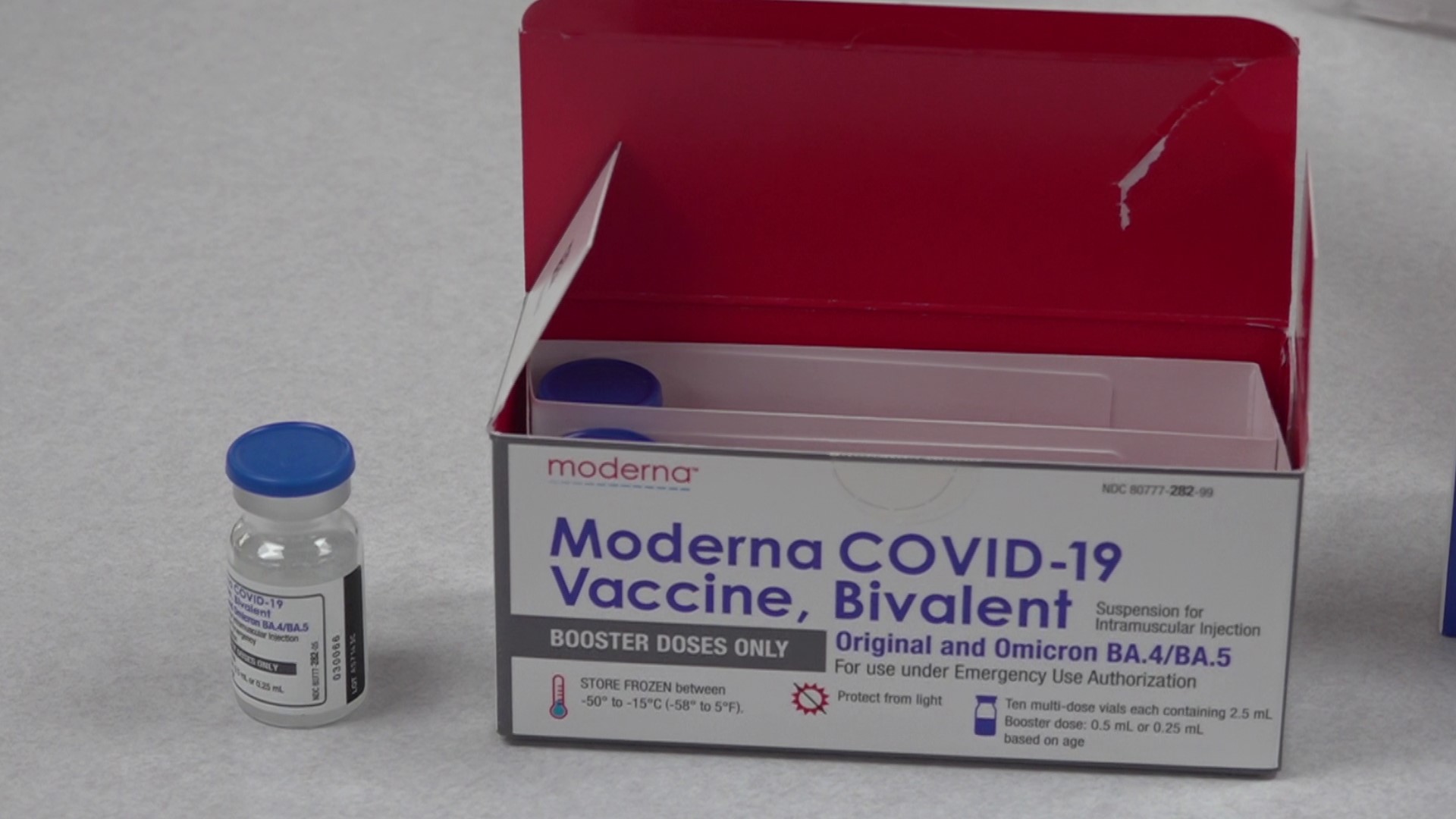DES MOINES, Iowa — The bivalent COVID-19 booster hasn't been available for long, but Dr. Ravi Vemuri with MercyOne shared the fall booster campaign is not going as well as the infectious disease world would like.
"Boosters have been available for almost two months now, and the uptake has been a lot slower than then we would like, especially with the cold and flu season kind of gearing up," Vemuri said.
Over in Dallas County, Abigail Chihak with the Dallas County Health Department shared data recorded on Oct. 3rd that shows almost four thousand people in Dallas County have received their bivalent booster dose.
"One of the things to think about with that... is that it's a couple of weeks old, right now, and that they have expanded the ages since some of that data came out," Chihak said. "So we're hoping that the next time they release more data, that number will be higher."
Over at Medicap Pharmacy in Urbandale, pharmacist and owner John Forbes has seen a steady crown coming in to grab the jab.
"The numbers seem to be holding steady," Forbes said. "And if anything, we're seeing a little bit of increase in people getting their COVID-19 booster shots at this time."
Unlike the rollout of other vaccines, this booster is recommend by the CDC for anyone who is five years or older who has received a primary series with any of the previously released vaccines.
"People are waiting because of age. that shouldn't be a factor anymore," Forbes said. "You can come in to any pharmacy or physician's office and get that booster and as long as you're within the guidelines of having this shot within a two to three month period of your previous shot."
Vemuri believes their is no greater time than the present to get the bivalent booster, even if they believe the pandemic has come to an end,
"Many people are thinking that maybe the pandemic is over. and, and in some regards, it might temporarily be 'over' in the sense that we are seeing relatively low community transmission now. But there's no guarantee that that's going to be persistent," Vemuri said.
If you're still waiting to receive your booster, you might want to do it soon: next year, the federal government will end funding of COVID-19 vaccines, meaning you'll have to run the cost through your regular insurance.

